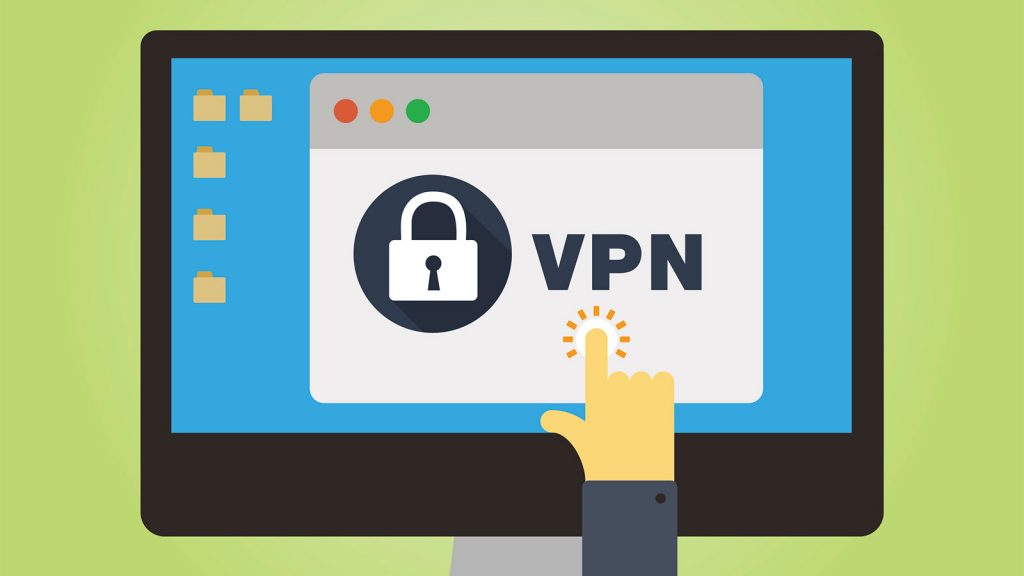What is VPN
By creating an encrypted tunnel between your traffic and anyone attempting to spy on you, a VPN adds an extra degree of security to your online activity. VPNs are useful while you’re out and using public Wi-Fi networks. A VPN can help you secure your privacy at home while simultaneously allowing you to access streaming content that would otherwise be unavailable. Because we spend so much more time at home than we used to, it’s more vital than ever to know when you should (and shouldn’t) use a VPN at home.
What a VPN Unable to Do
It’s critical to understand the restrictions of a VPN before using it. Its primary purpose is to secure your internet traffic and make it more difficult for others to track your online activities back to you.
Advertisers and snoops may still be able to collect data on you even if you use a VPN. A tracker blocker, such as the EFF’s Privacy Badger, is recommended. Browsers with built-in tracker blocking capabilities, such as Firefox, are also useful for safeguarding your privacy.
In addition, PCMag strongly advises installing antivirus software on your devices, enabling two-factor authentication if available, and utilising a password manager.
The Threats Abroad
It’s difficult to discern which networks are safe while you’re not at home. How do you tell which Wi-Fi network is legitimate in a coffee shop, for example? Unless the SSID is displayed someplace, you’ll have to make a guess. Bad guys will put up access points with well-known names in the hopes of tricking people into connecting. Once the victims are online, the bad guy performs a man-in-the-middle assault, allowing the malevolent attacker to monitor and even intercept some of your web traffic.
An attacker doesn’t even have to fool you; all they have to do is fool your phone or computer. By default, most devices are set to reconnect to known networks. However, if an attacker uses the same name as a popular Wi-Fi network—for example, Starbucks or Boingo Hotspot—your devices may connect immediately, even if you were really unaware. Because many businesses use easily guessed Wi-Fi network names, this is easier than you might expect.
Both of those approaches necessitate a lot of guesswork, but a good attacker will avoid them. Instead, they’ll set up their malicious access point to change SSIDs to match the ones that devices request. This is an unusual attack, but one that can be executed effectively. A security vendor discovered a rogue access point at the Black Hat conference a few years back that had altered its SSID 1,047 times, deceiving 35,000 devices into connecting.
The Threats at Home
Most of the time, we will assume that our home’s network will be safe. In our home network, unlike the public one, we wouldn’t scare the bad guy sneak into our house secretly, then change our router and wait for us to roll in. This is too much work and the risk index is too high, they will not make this unworthy deal.
However, there are dangers to be aware of at home. The largest is from the firm that provides you with an internet connection. The US Congress has given internet service providers permission to sell data about users and their online activity to anybody who is interested. Although ISPs claim that this data will be anonymized, the concept is nevertheless unsettling.
ISPs aren’t the only ones who care about what you do on the internet. Following the 2013 Snowden revelations, it has been discovered that NSA surveillance is significantly more widespread than previously thought. An outside observer will find it far more difficult to link your web traffic to you if you use a VPN. However, keep in mind that there are a variety of different ways to be followed online, and a VPN will not protect you from all of them.
Conclusion
In reality, whether or not you “need” a VPN in your home is a matter of personal preference. There are several reasons why a home VPN could be a useful addition to your security and privacy armor, but the most crucial factor is whether or not you will utilise it. Don’t use a VPN at home if you’re annoyed with slow internet speeds or juggling multiple viewing devices. Anyone can’t utilise a tool that hasn’t been used in a long time.
Congress’s decision to enable ISPs to sell anonymized data on their customers is a powerful motivator for VPN use. That’s why, even at home, we recommend having your VPN on as much as possible.
To read more about the VPN articles, you may visit our Casbay Australia blog and guide.



